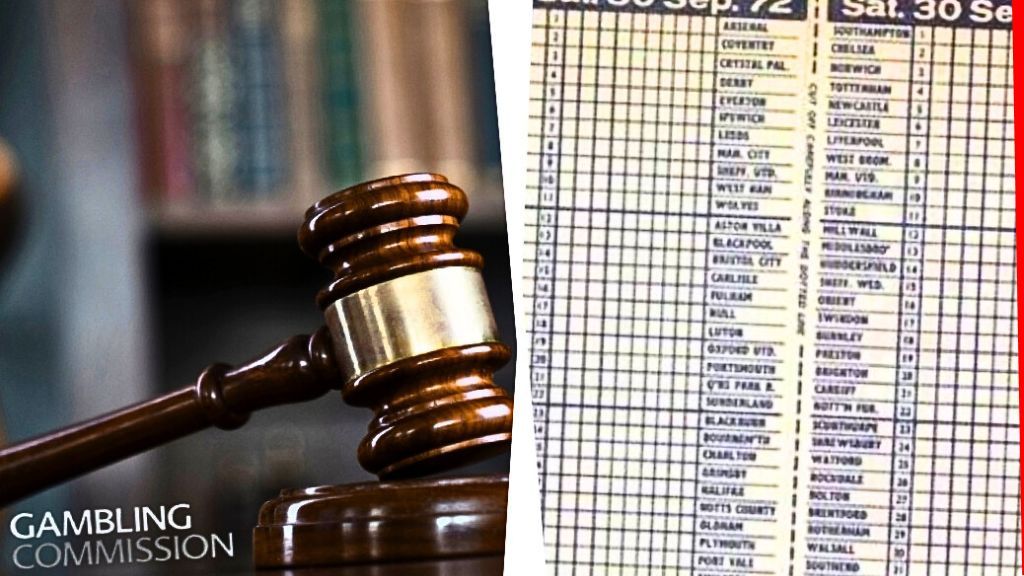
The Football Pools, once a weekend ritual for millions, is back in the headlines. But not for its payouts. Football Pools Limited, operator of footballpools.com and three other websites, must pay £375,000 after a Gambling Commission investigation found serious failings.
The breaches occurred between September 2022 and August 2023. Failings related to both anti-money laundering and social responsibility rules.
According to the Commission, Football Pools Limited was too reliant on financial triggers to spot suspicious behaviour. Football Pools Limited also failed to react swiftly to red flags. High-risk customers continued to gamble while waiting for manual reviews.
The company was also criticised for being slow to interact with players showing signs of harm. One customer deposited £4,100 in just two weeks but triggered no safer gambling intervention.
Director of Enforcement John Pierce said: “This case demonstrates that the Licensee’s approach to anti-money laundering risk profiling and monitoring was insufficient.”
The £375,000 will be directed to socially responsible causes. While the company co-operated fully and has since made improvements, the Commission warned that standards must not slip again.
It’s a sharp fall from grace for a brand that was once as British as a Sunday roast and Yorkshire puddings. For decades, the Football Pools offered hope, fortune, and a flutter rooted deep in working-class life.
It all started outside Old Trafford in 1923. A man called John Moores handed out coupons promising cash prizes for predicting match outcomes. That humble idea turned into a national obsession.
By the 1950s, over ten million people were playing the Football Pools each week. Homemakers, factory workers, and entire families would pore over fixtures, pencils in hand.
It was cheap. It was simple. And crucially, it was winnable. The Pools weren’t about jackpots. They were about score draws. And getting close still counted!
Winners became legends. Mrs E. Knowlson was the first to win £100,000 in 1950 – a staggering amount in post-war Britain.
Viv Nicholson made global headlines in 1961 when her husband Keith scooped £152,319. Her promise to “spend, spend, spend” made her a cultural icon. Furs, sports cars, champagne, and chaos followed. Her story became a cautionary tale and a stage musical.
In 1986, Margaret Francis and her colleagues at Roundway Hospital became the first million-pound winners, splitting £1,017,890. It was a win for syndicates and underdogs. Rodi Woodcock broke records in 1991 by becoming the first double millionaire. His £2,072,220 win was another Pools milestone. Michael Elliott raised the bar again in 2010 with a £3,001,511 win.
The launch of the National Lottery in 1994 changed everything. Before its arrival, up to 10 million people played the Pools. Within a few years, that dropped by 90 percent.
Jackpots were bigger in the Lottery. The format was simpler. People deserted the Pools overnight.
Revenue plummeted. The industry shrank. Littlewoods, Vernons, and Zetters merged under Sportech. They rebranded as “The New Football Pools” and moved online.
The core game, Classic Pools, survived. Players selected 10 to 12 matches they believed would end in score draws. Points were awarded accordingly: 3 for a score draw, 2 for a no-score draw, 1 for a win. The top-scoring line won the biggest share of the prize.
But the game’s rhythms belonged to another era. The panel formed during the Big Freeze of 1963, created to guess the outcomes of postponed matches, was still running. Loyal fans remained. But the buzz was gone.
The Commission’s findings were damning. Football Pools Limited failed to comply with key sections of Licence Condition 12.1.1 relating to anti-money laundering. It also breached paragraphs 1, 4, 5 and 8 of Social Responsibility Code Provision 3.4.3. The regulator found that the company relied heavily on financial triggers to detect risk. They set these financial triggers too high, and did not back them up with timely manual reviews. The company sometimes delayed risk profiles by weeks or missed them entirely.
When thresholds were hit, no automatic hard stops were applied. Customers could keep gambling without proper assessment. The firm’s system didn’t evaluate the urgency of reviews. On 26 March, the UK Gambling Commission confirmed sweeping changes to promotional rules designed to simplify offers and reduce gambling harm.
The Commission also uncovered similar issues on the social responsibility side. Some customers received no intervention despite clear signs of harmful behaviour. Others didn’t receive messages because they had opted out of marketing.
Markers of harm – long play sessions, high-velocity betting, sudden large deposits – were missed. One player deposited over £4,000 in a fortnight with no follow-up.
Officials noted a backlog in risk profile assessments caused by understaffing. In some cases, profiles were created two months after the financial trigger.
In mitigation, the company co-operated with the Commission. It submitted an action plan and shared progress updates. These steps reduced the scale of the penalty. But they don’t erase the past.
The Football Pools once paid out over £3 billion to millions of winners. They also gave more than £1.1 billion to sport-related causes. Their cultural legacy is vast.
But nostalgia can’t cover for non-compliance. Legacy brands must meet modern standards. AML, safer gambling, and real-time monitoring are now baseline expectations.
The Commission expects operators to use a full range of indicators to detect harm. It expects interaction to happen fast and documented decisions and risk profiles to be completed promptly. It doesn’t expect excuses.
The question now is whether other once-great brands are also cutting corners and how long the Commission will let that slide. Football Pools Limited must now prove it can operate to today’s standards. Not just the spirit of yesterday.
Can the Pools survive? Possibly. New games, online access, and loyal customers give it a future. But only if that future is built on diligence, not heritage.